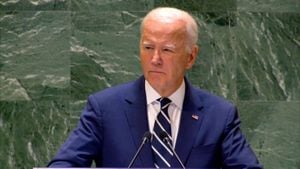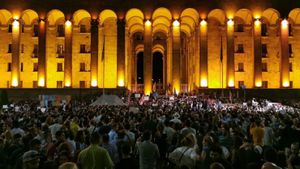The political climate in India is heating up as election season approaches, sparking intense discussions and investigations. Various party leaders are actively engaging with voters and addressing pressing issues, setting the stage for the upcoming elections. Amid this backdrop, controversies surrounding election-related events and investigations have taken center stage.
One such event includes the remarkable speech by Congress leader Rahul Gandhi at rallies throughout Jharkhand, where he highlighted the widening economic gap caused by the Prime Minister's policies.
"PM Modi is serving the interests of billionaires at the expense of the poor," declared Gandhi, seeking to rally support against what he describes as inequitable governance. This proclamation stems from increasing concerns from constituents about rising inflation and lack of job opportunities.
Akhilesh Yadav, the leader of the Samajwadi Party, has also made headlines by staunchly criticizing government methods. He asserted, "A government conducting encounters doesn't trust the Constitution," referencing the controversial instances of police action often met with public disapproval. Yadav's comments aim to put pressure on the ruling party by appealing to citizens' attachment to constitutional rights.
Meanwhile, West Bengal's Chief Minister Mamata Banerjee announced the formation of a Special Investigation Team to probe allegations of fund diversion related to election expenditures. This move is seen as pivotal for ensuring transparency amid mounting accusations of financial mismanagement during election campaigns. Banerjee stated, "We need to protect the sanctity of our electoral process," underlining her administration's commitment to uphold democratic integrity.
Simultaneously, the Election Commission of India remains vigilant as they undertake routine checks on political leaders’ activities. Recently, Union Home Minister Amit Shah’s helicopter was subject to scrutiny by Election Commission officials as part of broader monitoring efforts. This investigation emphasizes the commission's determination to maintain fair practices during the electoral process.
The political narrative is rife with rivalries, especially as Maharashtra gears up for elections. Opposing parties have leveled accusations at Eknath Shinde's government, claiming it is removing voter names linked to the Maha Vikas Aghadi alliance. "This is blatant manipulation to undermine our campaign and democracy itself," tweeted NCP leader Anil Deshmukh, articulately expressing the frustration among opposition parties.
While party leaders battle it out on various platforms, public sentiment is also shifting. Residents express mixed feelings about potential government changes, echoing concerns about economic management and social justice. "We want leaders who genuinely care about our welfare, not just their parties’ power," shared Anju Kumar, a Jharkhand resident. This craving for accountability was evident at Gandhi’s rallies, where attendees enthusiastically supported his message.
With modern technology intermingling with tradition, politicians are increasingly adopting digital means of outreach. Campaigns through social media have now become common, with leaders interacting live with constituents, rapidly responding to grievances, and promoting their agendas online. Experts believe this shift could significantly influence voting behavior, particularly among younger voters.
Every political rally now has its share of vibrant dynamics, featuring not only speecheckers but also cultural programs to engage the youth. Organizers assert this is pivotal for captivating interest and drawing crowds, transcending conventional rhetoric. "If we can fuse culture with politics, we can bring the younger generation on board," claimed one campaign manager, highlighting the need for innovation within traditional campaigning.
The multifaceted nature of this election season reflects the complex interplay of public opinion, party strategy, and grassroots movements. It remains to be seen how these dynamics will shape the electoral outcomes, but one thing is clear: all eyes will be on the politicians as they navigate this charged atmosphere leading up to the elections. Each misstep, accusation, or campaign promise will undoubtedly ripple through the electorate, influencing citizens' choices come voting day.
To cap it all off, the inquiries related to electoral integrity and allegations of improprieties hint at an urgent need for reform within the Indian electoral framework. The presence of investigative bodies and vigilance from the public create pressure for accountability and transparency, both of which are indispensable for healthy democratic practices. Election season heralds not just competition for power but also the opportunity for meaningful discussions about representation and governance.
Overall, as political leaders rally their supporters, the fabric of democracy will continually be tested, examined, and debated. Voters now possess more tools than ever to evaluate their leaders, reflecting the growing demand for transparency and sincere leadership.



